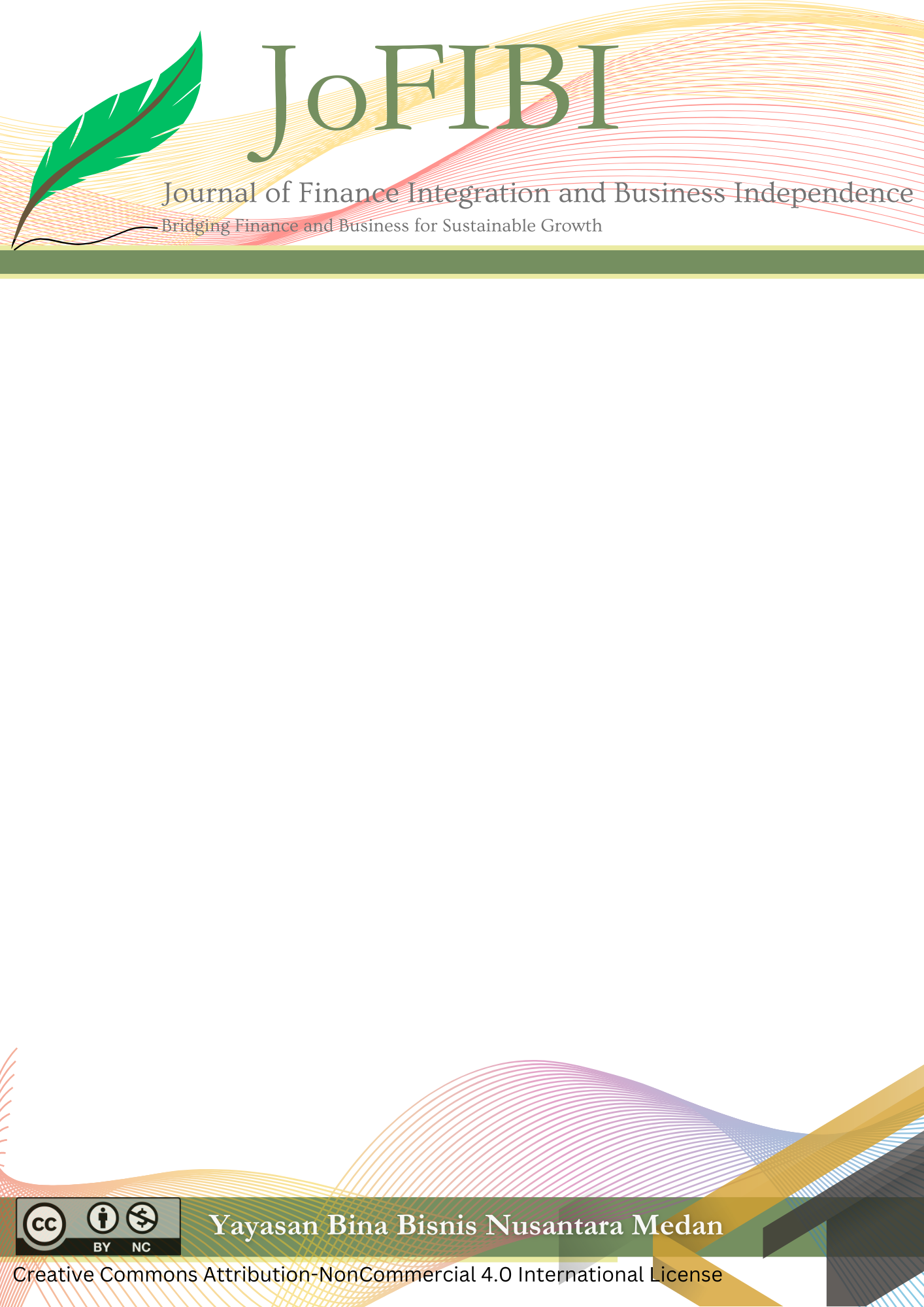E-ISSN: 3090-2746


Journal of Finance Integration and Business Independence (JoFIBI) implements a rigorous and structured peer review system to ensure the quality, credibility, and academic value of the articles it publishes. The process is designed to maintain fairness, transparency, and academic rigor.
JoFIBI peer review process is guided by the following principles:
This rigorous peer review process ensures that all articles published in the Journal of Finance Integration and Business Independence meet the highest standards of academic excellence, relevance, and originality.
E-ISSN: 3090-2746


CALL Me

Information
Journal of Finance Integration and Business Independence (JoFIBI)
 JoFIBI is licensed under a Creative Commons Attribution-NonCommercial International License
JoFIBI is licensed under a Creative Commons Attribution-NonCommercial International License
Published by:
YAYASAN BINA BISNIS NUSANTARA MEDAN
PERUM SRI GUNTING BLOK VA/7 Kel. SEI BERAS SEKATA
Kec. Sunggal, Kab. Deli Serdang Sumatera Utara 20128
email : adminfibi@nafasjournal.com
